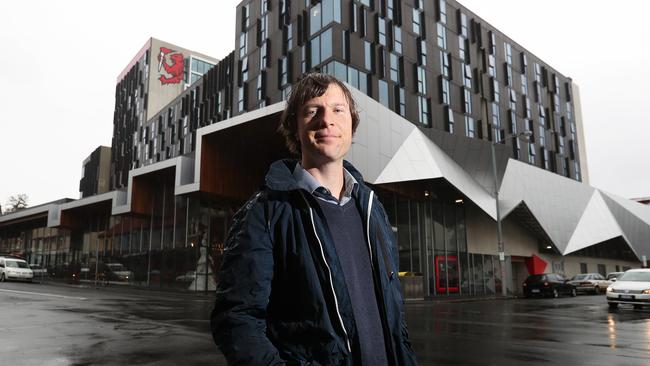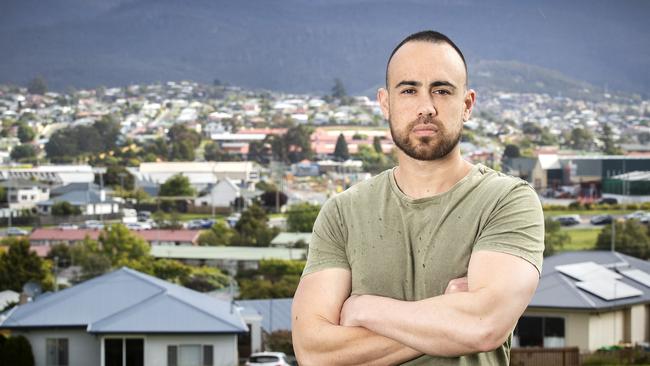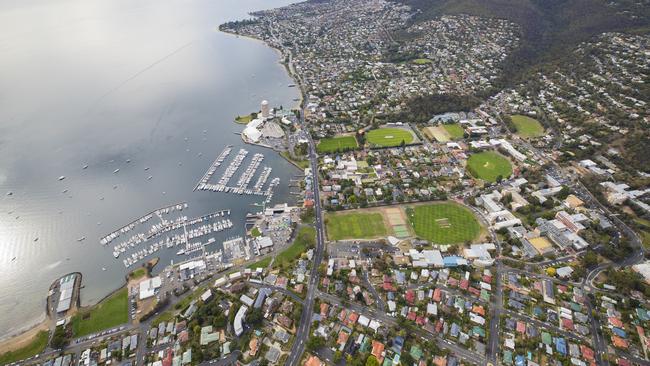An explosive survey on landlords attitudes after the COVID-19 pandemic, and how they feel about eviction, arrears and investments has uncovered startling results.
RENTAL properties left empty, rent hikes and a bias against lease applications from hospitality and tourism workers are some of the actions being considered by Tasmanian rental property owners, a landlord advocacy group says.
In a recent survey of its members, the Tasmanian Residential Rental Property Owners Association probed members on the impact COVID-19 and the subsequent state government protections for residential tenancies has had on attitudes to tenant eviction, rental arrears and housing investments.
From Realestate.com.au
- The Aussie suburbs where it’s cheaper to buy than rent
- What US election result means for Aussie real estate
Key findings include 45 per cent of respondents saying they would avoid leasing property to people who work in non-essential sectors such as hospitality and tourism; 28 per cent saying they would consider short stay lease options instead; and 27 per cent preferring to leave their property untenanted if another pandemic or second wave of COVID-19 hit.
Association president Louise Elliot said the findings were concerning.
“The results are worrying for tenants and landlords alike. Yes, the landlords will be the first to be hit financially but the flow-on effects of homes being withdrawn from the rental market and increased vetting of applicants will affect those seeking out privately owned housing,” she said.

Tenants Union of Tasmania’s acting principal solicitor Ben Bartl says by filtering applications by occupation, landlords could overlook a significant proportion of the Tasmanian workforce.
He urges landlords to look at prospective tenants’ pre-COVID rental payment histories when weighing up their decision.
“Twenty per cent of the state’s population work directly or indirectly in the tourism industry according to the Tourism Industry Council Tasmania,” he said.
“If there’s no issues with a tenant’s payment of rent then there’s no reason why that person should be discriminated against.”
The survey also found 11 per cent of respondents would highly likely stop being a landlord as they were extremely concerned about the financial viability, 33 per cent reported feeling very concerned and were seriously considering not being a landlord, and a further 40 per cent were somewhat concerned that being a landlord will no longer be worthwhile.
To date, 232 Tasmanian landlords have accessed financial support through the state government’s COVID-19 Landlord Support Fund with payments totalling $314,501. The one-off payment is available to landlords, who have a current residential lease with tenants who have fallen behind in paying rent.
The Tasmanian Residential Rental Property Owners Association, which formed last month, is seeking to formalise its offering and intends to offer a dedicated legal service for landlords.
See the website for full survey results.
A landlord’s perspective
SELF-EMPLOYED refrigeration mechanic Tim Hayden has a stay-at-home wife, three kids and three mortgages.
The 37-year-old Eastern Shore resident doesn’t consider himself wealthy.
At the height of the pandemic his income fell below the poverty line as his work reduced from more than 40 hours a week to just five.
During the COVID-19 pandemic, at a time when the family hoped to fall back on the rental income from their Geilston Bay investment property, it was being overrun by squatters.
Now, Mr Hayden and his wife are out of pocket $38,000 in lost rent, legal fees and property damage incurred during the state government’s moratorium on tenant evictions.

“I could tell the property was degrading every week when I was driving past. I just wanted to change the locks because every day was costing me more,” Mr Hayden said.
Following a lengthy legal battle Mr Hayden re-took possession of the property, but was dismayed at the state of the home.
“There were punch holes through every wall, the brand-new carpet had cigarette burns through it and our garage was turned into a drug den. The damage to the property was atrocious,” he said.
“He’d done nearly $40,000 in damage in eight weeks,” he said.
Mr Hayden is concerned with the high level of protection afforded to tenants during COVID and says measures need to be put in place to protect landlords.
He’s also worried about recent remarks made by Minister Elise Archer on a second moratorium on tenant evictions coming in to play if a second wave of the virus were to hit Tasmania.
“We’ve been thrown to the wolves,” Mr Hayden said. “At the end of the day we treat this as an investment, and investments can be anything. They can be shares or bank bonds. As an investor why would you accept so much risk?
He says if Tasmania were to enter a second lockdown period, he and his wife would have no option but to sell what they hoped would be their retirement nest egg.
“We’ve used up all our savings and had to take money from super to repair the damages. At the end of the day we couldn’t afford to do this again.”
Support worker Alex Goodwood feels the same. For the past four months he has been working an additional 20 to 30 hours a fortnight to cover the loss incurred by a non-paying tenant.
He says his tenants in his investment property at Brighton stopped paying rent as soon as the moratorium was announced. To date, they are in arrears of more than $6000.
“I just have to cut my losses,” he said. “Because the tenants have got themselves into so much debt, I don’t know how they’ll pay.
“My real estate agent calls them every second day reminding them to pay, but I’m resigned to the fact I won’t receive any money at all.”
Mr Goodwood says he feels a trust has been violated and intends to evict when the moratorium ends on December 1.
“Because in Tasmania tenants didn’t have to prove they were in hardship, the ruling has been abused,” he said.
“It hasn’t started to hit me until the past couple of weeks because of how much I’m working and now I’m seeing how unjust it is.
“If I do lease again, a family with a secure job will be of high importance.”


Add your comment to this story
To join the conversation, please log in. Don't have an account? Register
Join the conversation, you are commenting as Logout
Sales dip: Hobart home listings trend lower
Hobart property stock is tracking downwards during winter, but choice remains buoyant for buyers.
Bank building to go under hammer
NAB Devonport’s new $1.7m makeover is the cherry on the cake of this appealing asset — auction in August.